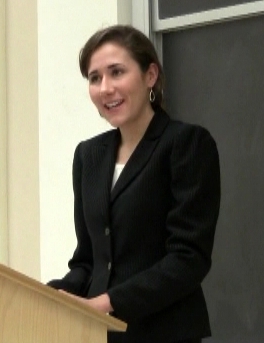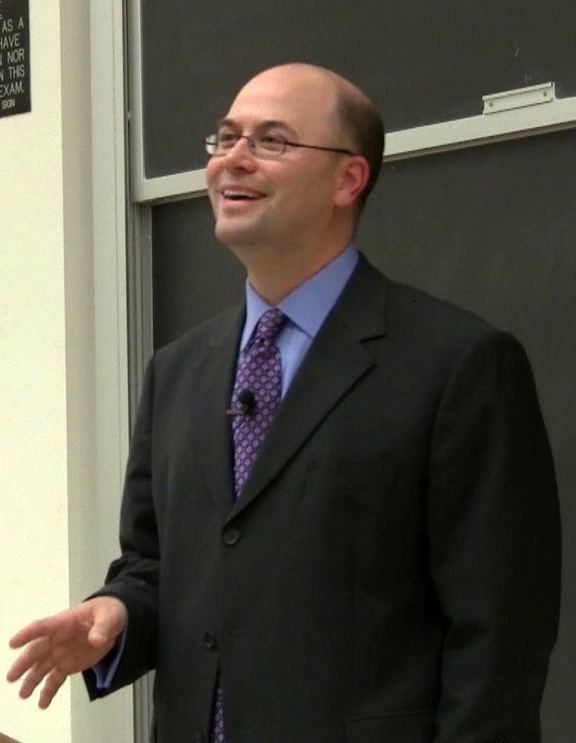Richard Garnett
University of Notre Dame Law School
"Positive Secularism:
Understanding the Separation of Church and State"
February 4, 2011
Minor Hall Auditorium / UVA / 5:30 PM
The St. Anselm Institute continued its tenth year anniversary celebration by welcoming constitutional law scholar Richard Garnett to Mr. Jefferson's University. Prof. Garnett is widely recognized for his expertise on a variety of topics, including the constitutional freedoms of religion, speech and association. He currently serves as Associate Dean and Professor of Law at the University of Notre Dame. He also directs Notre Dame Law School’s new interdisciplinary Program in Church, State, and Society. His forthcoming book, Two There Are: Understanding the Separation of Church and State, will be published by Cambridge University Press.


Third-Year UVA Law student April Russo, President of the UVA St. Thomas More Society, a cosponsor of this lecture, very ably introduced Prof. Garnett and reminded the audience that the University's Law School first resided on Grounds in Minor Hall, the fitting University location selected for this evening's public lecture. A capacity crowd filled the Auditorium to listen to Garnett's development of the idea of "positive secularism" as a
 lens for viewing the customary separation of church and state in the United States. Pope Benedict XVI and others have expressed their admiration for the "American model" of religious freedom and church-state relations in which government respects both the role of religious arguments and commitments in the public square and the important distinction between religious and political authorities. This model is "secular" in the sense that laws and policies are not supplied or implemented directly by religious authority; it is "positive" in that the understanding of human flourishing it is designed to promote protects the freedoms of religious practice, the search for religious truth, and the sanctity of religious conscience. The American experiment in religious liberty and the principle of church-state "separation" should, therefore, be seen and celebrated as part of an attempt to secure religious liberty and authentic human flourishing through constitutional limits on governmental interference and constitutional protection of the profession and practice of faith.
lens for viewing the customary separation of church and state in the United States. Pope Benedict XVI and others have expressed their admiration for the "American model" of religious freedom and church-state relations in which government respects both the role of religious arguments and commitments in the public square and the important distinction between religious and political authorities. This model is "secular" in the sense that laws and policies are not supplied or implemented directly by religious authority; it is "positive" in that the understanding of human flourishing it is designed to promote protects the freedoms of religious practice, the search for religious truth, and the sanctity of religious conscience. The American experiment in religious liberty and the principle of church-state "separation" should, therefore, be seen and celebrated as part of an attempt to secure religious liberty and authentic human flourishing through constitutional limits on governmental interference and constitutional protection of the profession and practice of faith.The St. Thomas More Society at the University of Virginia Law School and Our Sunday Visitor Institute cosponsored this public lecture. If you missed this lecture, you can watch it here.

